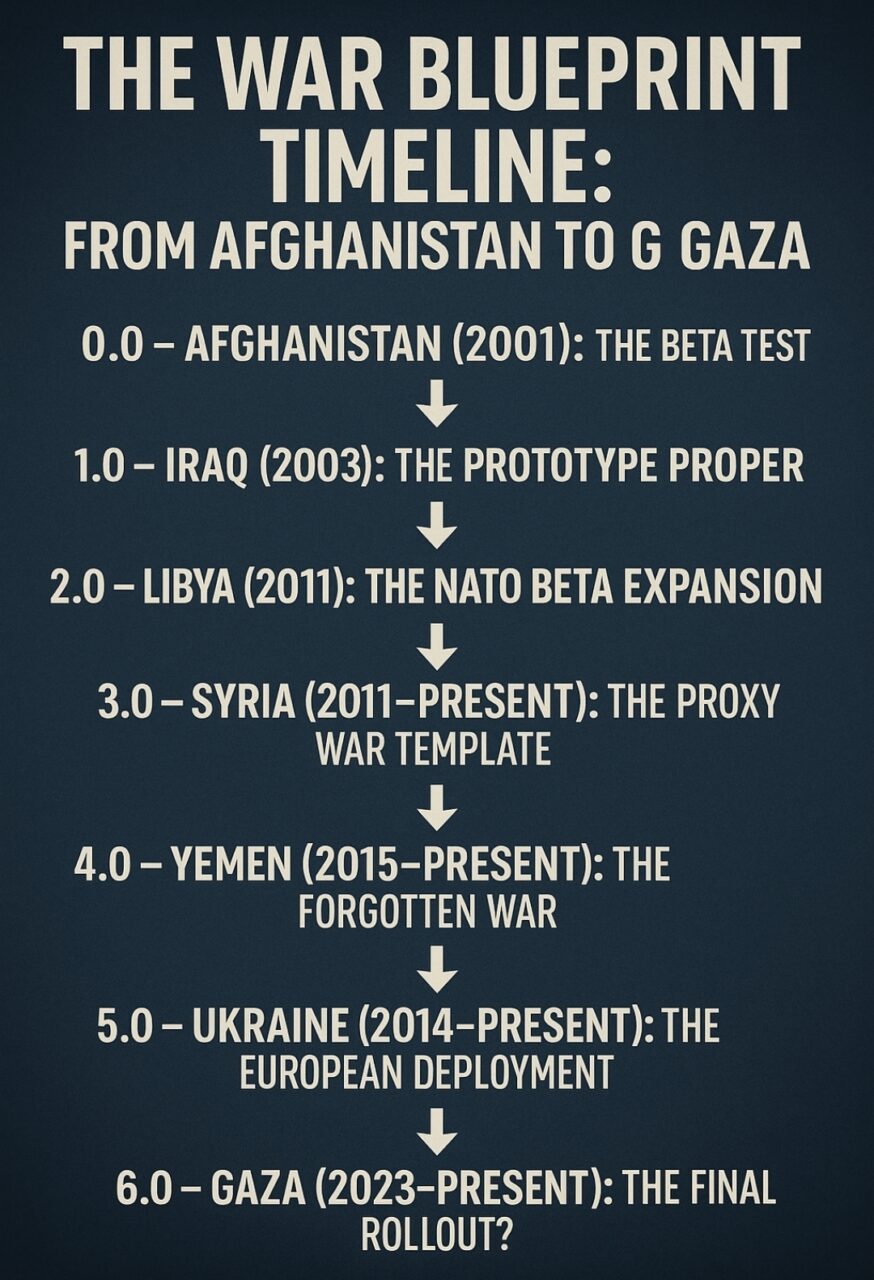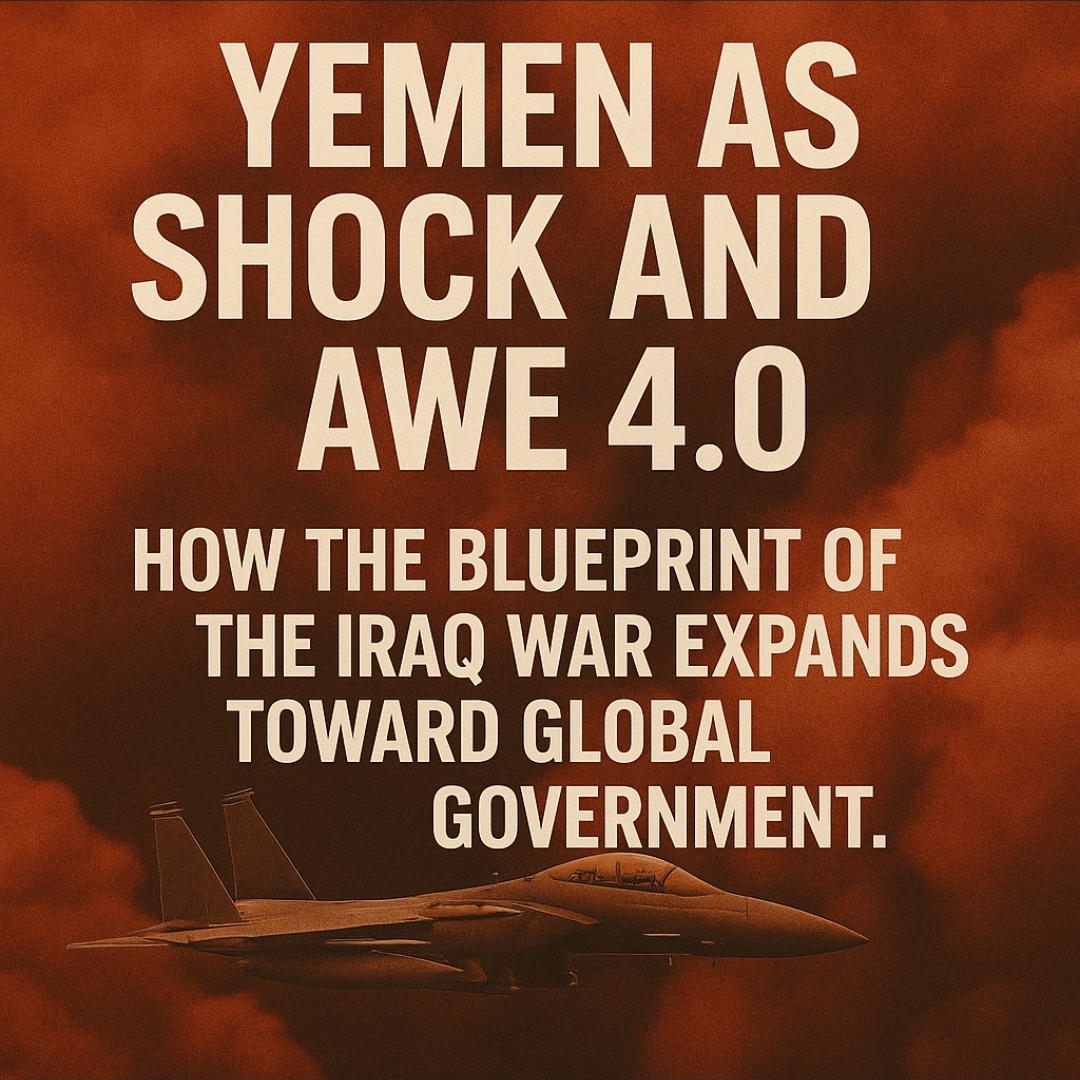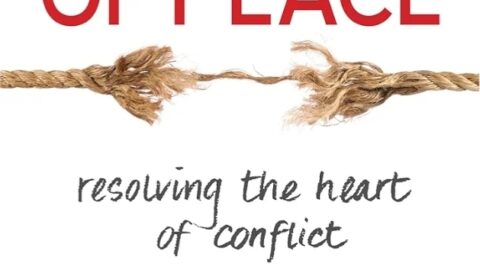Revisiting the Iraq War (2003) – Lessons for Today

By revisiting the Iraq War, we see more than a tragic miscalculation — we see a blueprint. The 2003 invasion pioneered a model of control: justify intervention with fear, saturate the media with consensus-driven propaganda, unleash overwhelming military force, then normalize endless occupation under the guise of security. This model was not buried with Saddam Hussein; it was refined, updated, and exported.
The Yemen Escalation
Israel was given the green light by Washington — has carried out over 40 airstrikes on Yemen using U.S.-made F-35 fighter jets. On the surface, this is presented as a “regional security” issue.
But just as in Iraq, the fingerprints of power are unmistakable:
- Israel & U.S. Nexus: Israel does not launch such a campaign without American approval. The planes are American, the funding is American, and the political shield at the UN is American.
- Defense Industry Ties: F-35 deployment showcases the marriage of U.S. foreign policy and military-industrial profit. Just as Iraq’s invasion enriched contractors, today’s strikes keep the gears of the arms economy spinning.
- Geopolitical Chessboard: Yemen’s Red Sea location and chokepoints are vital for global trade and oil routes. The strikes are less about “terrorists” and more about securing leverage over shipping, energy, and finance.
The Psychological War Replayed
What was true in Iraq remains true in Yemen: war is waged first in the mind.
- Conscious Mind: Headlines scream “Iran-backed Houthis” or “terror threats,” overwhelming rational reflection.
- Subconscious Mind: Repetition builds acceptance. Just as “WMDs” became a mantra in 2003, today’s constant association of Yemen with “terrorism” normalizes intervention.
- Unconscious Mind: Archetypes take root — the “terrorist Arab” frame, cultivated since 9/11, shapes perceptions long before facts are considered. Yemen is simply plugged into the same template.
Shock and Awe Never Ended
The lesson of Iraq was not learned — it was institutionalized. From Baghdad to Sana’a, the Shock and Awe doctrine has become a standing operating procedure for empire. It colonizes minds, manipulates crises, and advances the slow march toward global governance by perpetual war.
Why This Matters
Yemen reveals the continuity: the same actors (U.S., Israel, defense contractors), the same methods (propaganda, overwhelming force, economic capture), and the same psychological manipulation. By recognizing the blueprint, we are not simply looking at Yemen in isolation; we are seeing the next chapter of a global story that began long before 2003 and will not end until the playbook is exposed.






